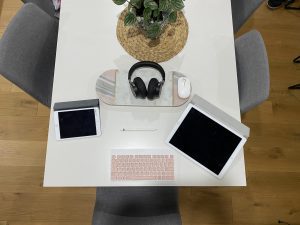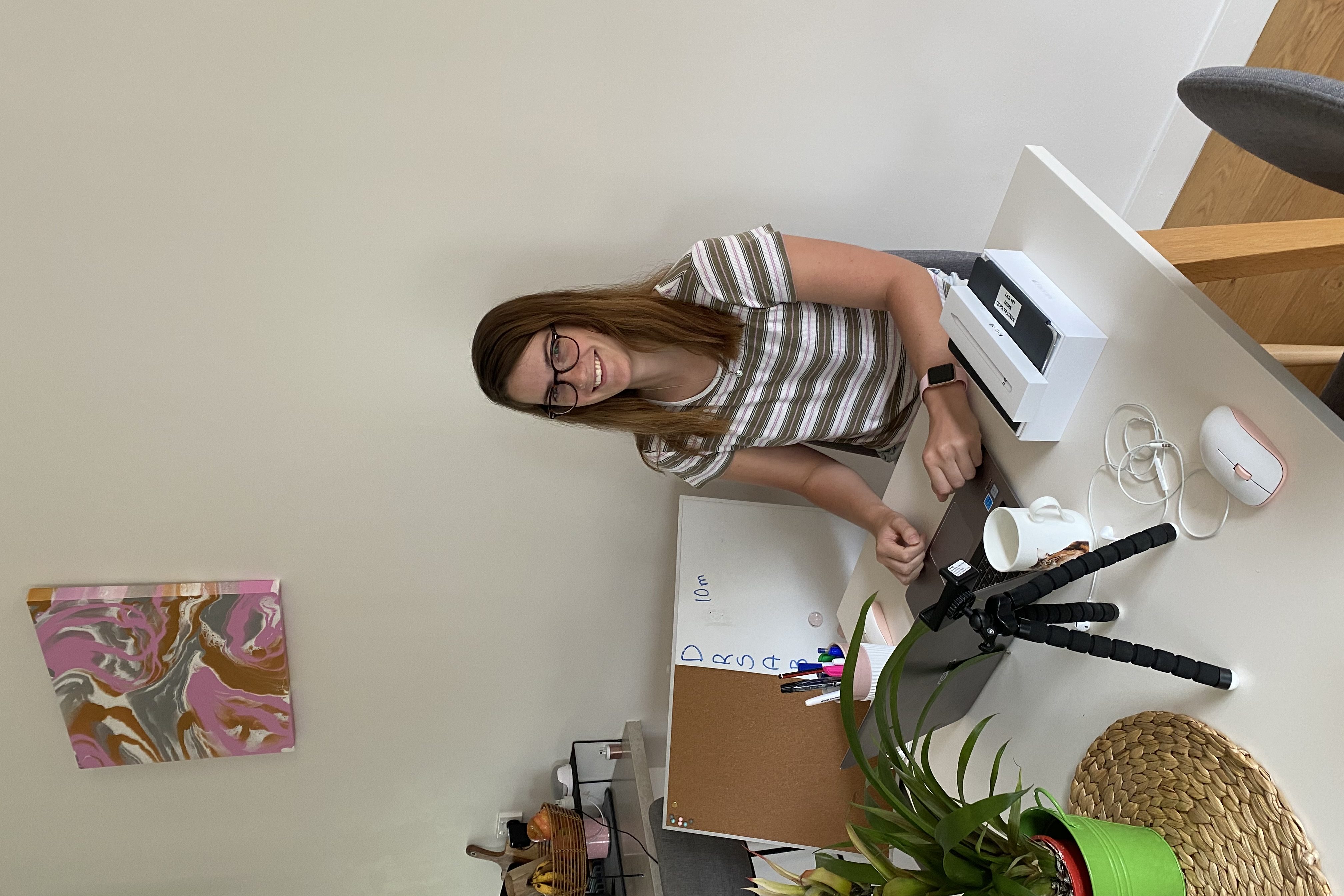By Lucy Osborn MACN (ENL)
This column, The Scrubs that Fit, is all about the highs and lows of being a junior nurse, from the perspective of an ACN Emerging Nurse Leader. The aim of these blog posts is to help ease the transition from university to grad years and beyond. Find Lucy on ACN’s neo and on Instagram @aussie_nurses.
Have you just transitioned to online learning? Did you specifically choose to complete a face-to-face course because that’s how you learn best? Are you thinking about starting online education in the coming months? Are you already completing an online course? If you answered yes to any of these questions, then today’s article on my top tips for online learning is for you.
Last year, I chose to do my Graduate Certificate in Paediatric Emergency as setting aside the same day/s each week for learning just wasn’t an option for myself and my shift work. Although I loved my course and learnt a lot, online learning still doesn’t have a strong appeal to me. I am a kinaesthetic learner; I need to do to understand and I like to know all of the details to have a rounded understanding. I learn by teaching back and by having conversations with my peers.
However online learning isn’t all bad! Some of my favourite perks include:
- Flexibility- less face-to-face classes means you can create your own schedule
- You can wear pyjamas all day
- It is in your own home
- The self-directed learning style.
As a lecturer, I have recently had to re-write my content to be delivered online and, as I mentioned above, I have also recently completed my graduate certificate online. Based from my experience, here are my top tips for not only surviving online learning but enjoying it too!
-
Maintain a routine
Set yourself a time to start your work and be realistic about how much you are likely going to need. My class is expected to complete around four hours of university work each week for my subject, excluding going over the modules.
Having a designated study area is also crucial to maintaining routine. Make it nice, enjoy the space and remove things that distract you (i.e. TVs) and replace them with something that uplifts your spirits like an indoor plant, a lolly jar or a scented candle.
Here a little photo of my nook. As you can see it’s nothing fancy, but it helps me focus and work hard.

Try and keep these two things constant to help maintain that routine.
-
Maintain a healthy lifestyle
It is important to take regular breaks from study and go out for a walk or to get some fresh air. Be sure to drink plenty of water, eat in a regular routine and try not to binge eat (this is one of my biggest distracters).
-
Keep in touch with your class
Make an effort to attend your synchronised classes, talk to your peers about your content and make sure you are still an active member of group work. This is important because it will help maintain some normality and we learn best when in a group. Chatting with your peers about content is a really important step in consolidating your learning, it challenges you with questions and information you may not have throughout of yet. Multiple perspectives are so important in healthcare, to ensure we get it right for the patient.
-
Mix up your study techniques
When the words start flying off the page when you’ve been staring at them too long try mixing it up. Some techniques I have used are:
- Watching videos that explain the content
- Explaining the concept over the phone to someone who’s never heard of it before, if you can help them understand it then you know you have a good grasp of it.
- Using flashcards and quizzes
- Drawing pictures.
Did you know that Word will read aloud text so you can listen instead of reading? This is also a great technique to help mix it up.
- Don’t give up and don’t stress out
This transition to online learning has been tough for everyone. Your teachers are feeling it too, we’ve chosen to teach face to face classes as it’s what we enjoy. I am still learning how to teach from a distance. When you find yourself stuck on a topic get in touch with your peers, ask your teachers and research. Don’t be defeated. Universities Australia-wide are being very flexible with this transition so be honest with the teaching staff and let them know if you are struggling. We want to help you get through this.
My take-home message for this article is don’t be frightened or stressed. Be honest with yourself and your teaching staff and ask for help if you need it. You are being assessed on your knowledge and understanding, not your ability to use new software or even learn online. it’s important that we, as teachers, help you gain the knowledge however you need it.
You got this. Keep going.





